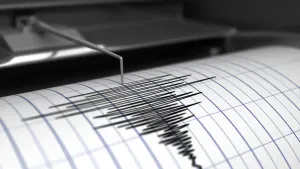
Oceans absorb much more carbon than previously thought, study finds
Scientists have found that the world’s oceans are capturing more carbon than most climate models currently suggest, which has significant implications for calculating future warming.
Understanding how oceans absorb carbon is fundamental to predict our future climate. A new study conducted by a group of scientists from Exeter University shows that some parts of our oceans are absorbing carbon up to twice the rate calculated by current climate models.
The new research reveals a better understanding of how climate flux should be calculated in the coming years and centuries. Carbon flux is the movement of carbon between the atmosphere and oceans, which plays an important role in the Earth’s climate.
At least 50 per cent of the oxygen we breathe comes from plants in the ocean, and they capture roughly 25 per cent of the carbon released from human activities. Since the oceans both capture and release enormous amounts of carbon, scientists are revising their calculations and projections as their understanding of these processes become more detailed.

This demonstrates how oceans absorb carbon dioxide and marine species, such as phytoplankton, release oxygen. Credit: Käse L and Geuer JK (2018). (CC BY 4.0)
The reason why carbon flux processes were previously underestimated is because it did not account for the temperature differences between the ocean surface waters and those a few metres below. When this correction is made, carbon flux predictions using computer models are now closely aligned with the results obtained using other methods.
The new understanding of how much carbon the oceans capture could downgrade some of the current climate change calculations done for future climate scenarios, says Dr. Mario Picazo, meteorologist and professor at the University of California, Los Angeles (UCLA).
“At the same time, if oceans are absorbing more carbon, they will become more acidic, which will amplify the impact on marine life.”
See the video above for an explanation from Picazo about what this new study means for future climate models.
Thumbnail courtesy: Caleb George via Unsplash











